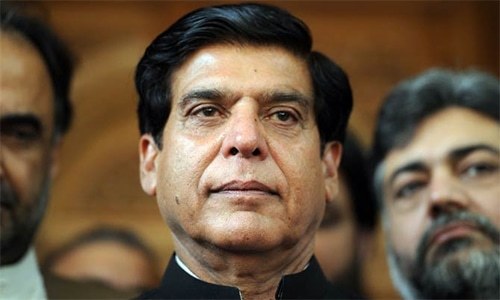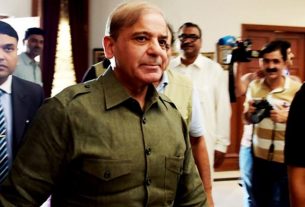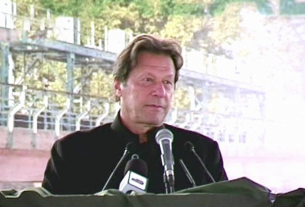ISLAMABAD: Islamabad High Court (IHC) on Friday disposed of a petition filed by former prime minister Raja Pervaiz Ashraf seeking lifting of a travel ban on him. The IHC advised him to approach trial courts where proceedings were pending against him.
A two-member bench, comprising Chief Justice Athar Minallah and Justice Mohsin Akhtar Kayani, announced the decision reserved on Thursday.
Advocate Farooq H. Naek, counsel for Mr Ashraf, argued before the court that his client was placed on the exit control list (ECL) on the request of the National Accountability Bureau (NAB). Despite being on ECL, the federal government allowed him to proceed abroad time to time on one-time basis.
However, the last request was not acceded to by the ministry of interior, and Mr Ashraf was instead advised to seek permission from courts before which proceedings were pending against him.
Mr Naek said freedom of movement was one of the most valuable and important fundamental rights guaranteed under the constitution.
He said permission to travel abroad was not required to be obtained from courts where proceedings were pending.
The court observed that “the statute explicitly contemplated that proceedings in a criminal trial were regulated exclusively by the trial court. It is settled law that a high court while exercising jurisdiction under Article 199 of the constitution cannot interfere with the proceedings relating to a pending trial which are regulated exclusively by the trial court.”
As per the court’s order, the federal government has taken the stance that it shall not obstruct or in any manner object to the petitioner leaving Pakistan if the respective courts granted him permission.
The IHC observed: “We have been unable to persuade ourselves regarding the arguments advanced before us by the learned counsel for the petitioner that permission to travel abroad is not required to be sought from the court before which the trial is pending. This argument is not in conformity with the legislative intent of seeking exemption…it is implicit in the language of the said provision that an accused has to make complete disclosure of all the relevant facts, including plans to travel abroad, for the purpose of seeking exemption from personal appearance because only then would the trial court be able to exercise its discretion in deciding whether or not the request may be acceded to.”
Moreover, the court order read: “If the name of an accused is on the ECL then an accused has to bring to the notice of the trial court plans to travel abroad and to seek explicit exemption for this purpose. This is necessary because all matters relating to a trial, including the presence of an accused or granting exemption for this purpose. This is necessary because all matters relating to a trial, including the presence of an accused or granting exemption, are exclusively dealt with and regulated by a trial court. This discretion obviously cannot be interfered with while exercising jurisdiction under Article 199.”
The court concluded that “the petitioner, if so advised, would be set at liberty to file applications with different trial courts before which proceedings are pending against him… in case each trial court is satisfied and exemption from personal appearance is granted with the permission to travel outside Pakistan, then the federal government has taken a stance that in such an eventuality the petitioner’s name being on the ECL would not be an impediment.”



